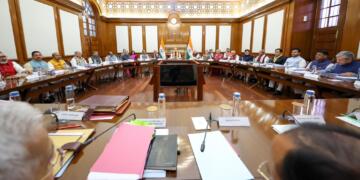Over the past month and a half, we have seen how China has been trying to apply pressure on India in Eastern Ladakh through an unprecedented military stand-off. But while we were focussing on Ladakh all this while, Beijing has also been playing silent games in India’s Northeast by nurturing insurgent groups active in this part of the country.
On May 15, Myanmar handed over 22 Northeast insurgents to India, of whom 12 were associated with four terror groups active in Manipur- UNLF, PREPAK (Pro), KYKL and PLA, while the other ten were associated with insurgent groups in Assam such as NDFB (S) and KLO. This could have been a red-letter day in India’s fight against insurgent groups in the Northeast, only if China had not played spoilsport.
According to The Federal, it was China which ensured that not a single high-profile insurgent leader was amongst the 22 extradited to India from Myanmar. According to a senior police officer in Manipur, Myanmar had acted upon intelligence shared by India, but China had already ensured a safe passage for the top insurgents on the radar of security agencies even before Myanmar acted.
The Myanmar Army (MA) had cracked down on the Northeast insurgent groups having their camps in Myanmar in the months of February and March last year. Intelligence sources said that a list of top militant leaders of the Northeast was shared to be acted upon.
On radar were the Chairman of the United Liberation Front of Assam-Independent (ULFA-I) Abhijit Barman, the outfit’s commander-in-chief Paresh Barua, finance secretary in-charge Jibon Moran and the Manipur’s People’s Liberation Army Irengbam Chaoren.
But only the middle-rung or cadres of these insurgent groups could be taken into custody as the top militants found safe passage into the Yunnan Province of China.
In fact, China has not only provided safe sanctuaries to these militants, but Beijing is also feeding these insurgent groups active in Northeast India. It has been shielding the top leadership of these insurgent groups for quite some time.
Last year, former commander-in-chief of the National Socialist Council of Nagalim (Isak-Muivah) sneaked out of India seeking military aid from China. Before going “underground”, he warned that “India would learn a lesson if the Nagas again went to China.”
The hints are clear- China is trying to bolster insurgent groups in the region just like it was doing in the 1960s. There is no clear indication of a departure in China’s current position of not providing overt support to militant groups active in India.
But the People’s Liberation Army’s (PLA) Southern Theatre Command has been sheltering insurgents and facilitating procurement of arms.
In fact, when the Sheikh Hasina government had handed over the entire top brass of the ULFA, NDFB and KLO to India in November and December 2009, ULFA leader Paresh Barua had moved out to China.
In 2017, Additional Director-General of Police, Assam had disclosed that Barua had set up base in Ruili- a Chinese town located close to Myanmar which is the hub of legal and illegal trade between Myanmar and China.
China has been facilitating supply of arms to the Indian insurgent groups having camps and hideouts in Myanmar as well as the separatist Arakan Army of Myanmar.
The arms are supplied by China’s ordnance unit, North Industries Corporation (NORINCO) based in the Yunnan province.
It is known that China aids insurgents in the Northeast whenever there is a certain degree of embitterment in bilateral ties. And currently, tensions are soaring between India and China with border skirmishes and growing sense of competition with India looking to challenge China’s hegemony in the backdrop of global backlash against the Dragon.
The two countries are also competing for influence in Myanmar. The country is central to India’s Act East Policy and China also looks at Myanmar as crucial to its Belt and Road Initiative (BRI). Therefore, China wants to win the favour of all insurgent groups having presence in Myanmar, whether they are India-focussed militant factions or Burmese separatist groups.
As ties sour between New Delhi and Beijing, China might be looking to step up the proxy war in India’s Northeast.



























